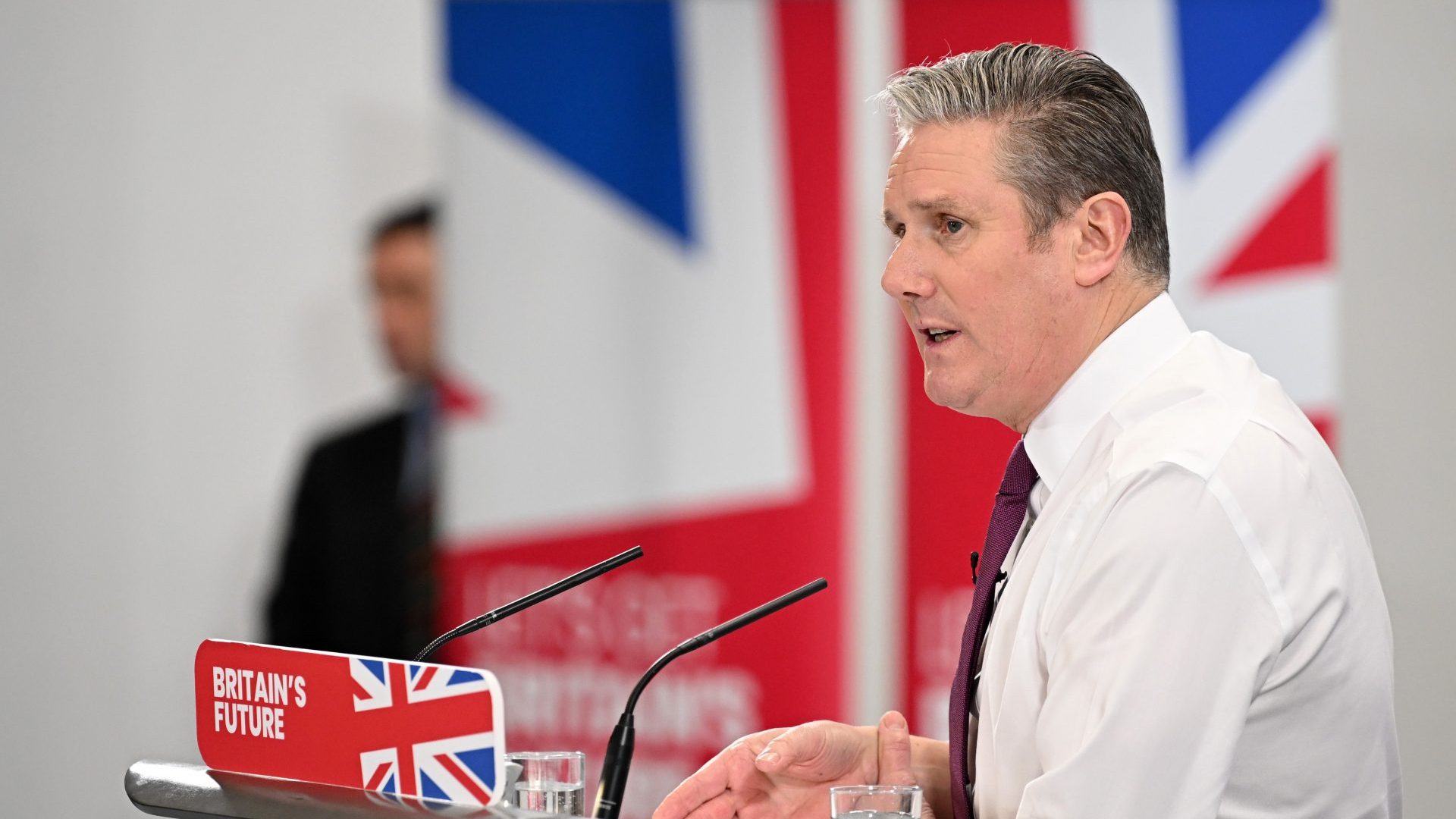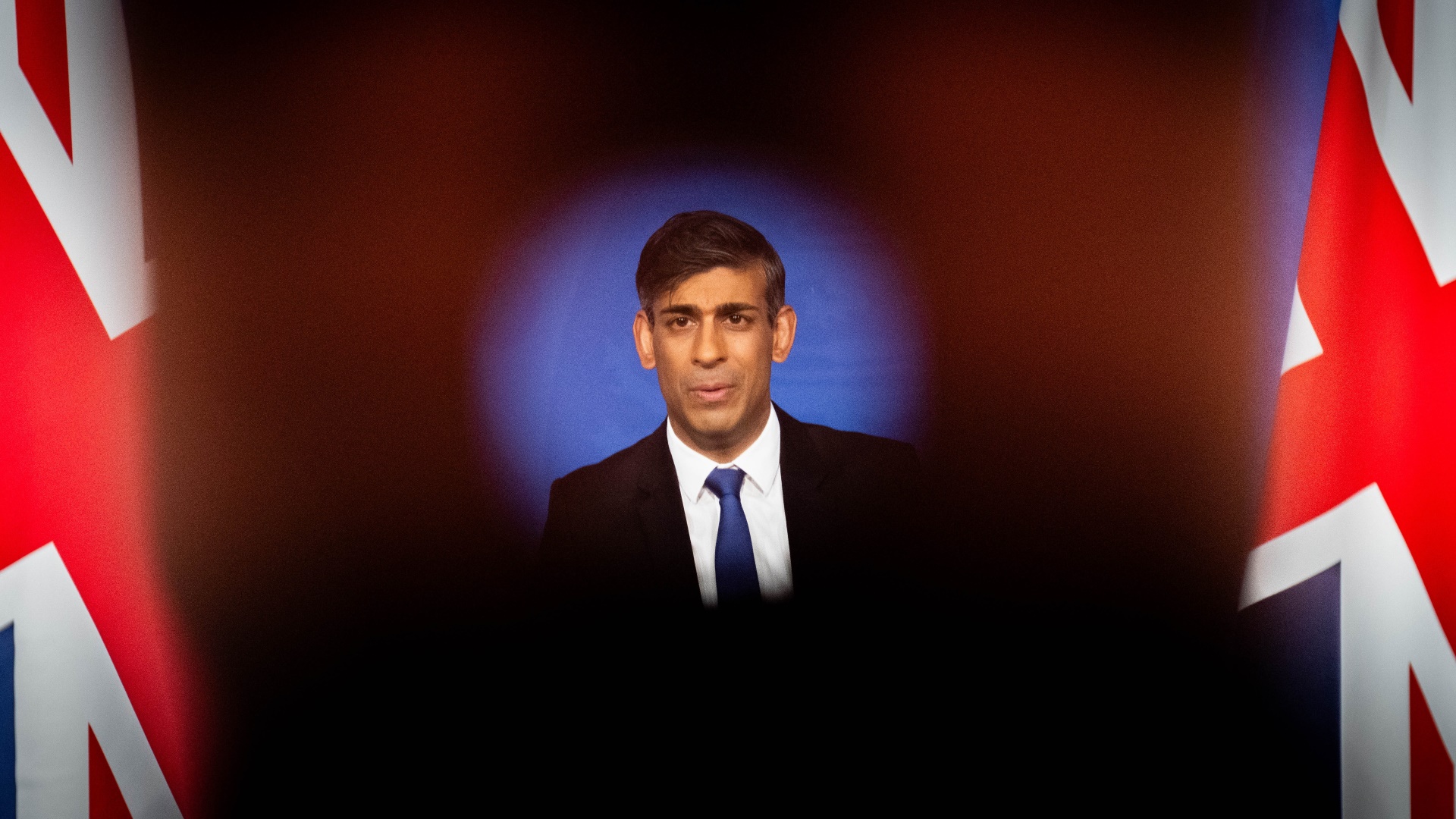The expectations facing Keir Starmer in 2024 could hardly be more daunting. So entrenched is the assumption that Rishi Sunak will lose – even, perhaps especially, among Conservatives – that anything short of a hefty Commons majority will be chalked up as a failure for Labour.
This is, of course, grossly unfair, given how far Starmer has brought his party since he became leader in April 2020: from the verge of total collapse to the antechamber of office. But since when was politics fair?
Meanwhile, Jeremy Hunt’s announcement that the Budget will take place on March 6 has naturally encouraged speculation that the chancellor is planning a bonanza of tax cuts as the launch of the Conservative campaign for a general election in May. Whether or not the PM decides to go to the country in the spring, he certainly intends to leave Labour with as little fiscal headroom as possible.
There is, however, one visionary cause that Starmer can make his own in the months ahead, and at negligible cost: namely, the renewal of trust in public life. The immediate political case for embracing this task is strong. But it is also strategically essential if Labour wants to govern consequentially.
Scroll back to June 2022 and the fall of Boris Johnson; the proximate causes of which were partygate and his botched management of the allegations of sexual misconduct against the former deputy chief whip, Chris Pincher. After years of lies, hypocrisy, venality, indifference to the law, and a culture of presumed impunity, this amounted to an “ethical crash” every bit as destructive to our democracy as its financial counterpart in 2008-9.
The body politic had been edging towards such a catastrophe since the parliamentary expenses scandal of 2009. In 2020, the pandemic offered Johnson’s government the opportunity to repair the bonds of public trust, a shared front on which all could fight. The public rose to the occasion by complying with lockdown regulations, schooling their children at home and – hardest of all – staying away from hospital when their relatives were dying. In return, they were rewarded with parties in Downing Street and Michelle Mone profiteering from the urgent shortage of personal protective equipment.
None of this is Starmer’s fault. But it is very much his problem. In public life, the impact of a collapse in trust is asymmetric; which is to say that it is a greater problem for progressive parties. Those who seek to reform, rebuild and intervene for the common good necessarily depend upon public collaboration, a minimal level of faith in government and a sense of collective mission. In sharp contrast, the populist right positively thrives on cynicism, polarisation and the empty carbs of gesture politics.
For Labour, the presidency of Joe Biden ought to be a terrible warning. By most measures, his administration has delivered impressively and set the US firmly on the path to economic recovery. Yet none of this has translated into support for Biden or renewed faith in the political process.
No politician can summon a recovery of public trust with a snap of their fingers; but they can nurture the conditions that might make such a recovery possible. For Starmer, there is a series of relatively straightforward measures that could be taken in the first years of a Labour government and pledged with confidence and brio during 2024 as a coherent response to an urgent problem.
In this respect, the Labour leader already has two manuals written by colleagues, which he can quarry meticulously to develop such a narrative. The first is the report of Gordon Brown’s commission on the UK’s future, published in December 2022. The second is Code of Conduct: Why We Need to Fix Parliament – and How to Do It by Chris Bryant, former chair of the Commons select committees on standards and privileges: a fine, historically informed blueprint for root-and-branch reform.
Here are just a few of the steps that Starmer could take:
• A complete overhaul of the Electoral Commission to drive foreign money from UK politics and confront the impact of digital technology upon elections – revising or replacing the hopelessly outdated Political Parties, Elections and Referendums Act 2000.
• As Bryant recommends, the amalgamation of the independent adviser on ministers’ interests, the Advisory Committee on Business Appointments, and the House of Commons and House of Lords’ commissioner for standards into a single independent national commissioner for ethics and standards, accountable to parliament.
• Harmonise the Commons Code of Conduct, the Lords rules, the Behaviour Code and the Ministerial Code into a single parliamentary code, on a statutory basis.
• Toughen the sanctions for ministers who knowingly mislead parliament and refuse to correct the record.
• Pledge to reform the second chamber, without further excuse or delay, by 2029.
No inventory of such measures, however technically effective, will be sufficient without a compelling narrative to bind them together. This will require of Starmer a calibre of leadership to which he has visibly aspired in the last year but not yet mastered: visionary, honest, challenging and (the hardest part) simultaneously humble and confident.
For Labour, this is an existential matter. Without at least an incremental return of public trust, its colossal task of national recovery will be doomed from the start. It will be whistling in the wind of ingrained popular suspicion and irretrievable dismay.
But it need not be so. A third source that Starmer might consult is Trust by Pete Buttigieg, presently the US transportation secretary and former Democratic presidential contender. “Too often,” writes Buttigieg, “we think of trust as the product of infallible consistency. But trust is just as often about how we handle failure, and in the wake of failure people can be astonishingly forgiving.”
That is so, and it frames the problem with an imaginative boldness that Starmer would do well to emulate. The political class in this country badly needs to seek the forgiveness of the public it has so gravely let down. The leader who has the strength and courage to make such an appeal will be rewarded handsomely.




